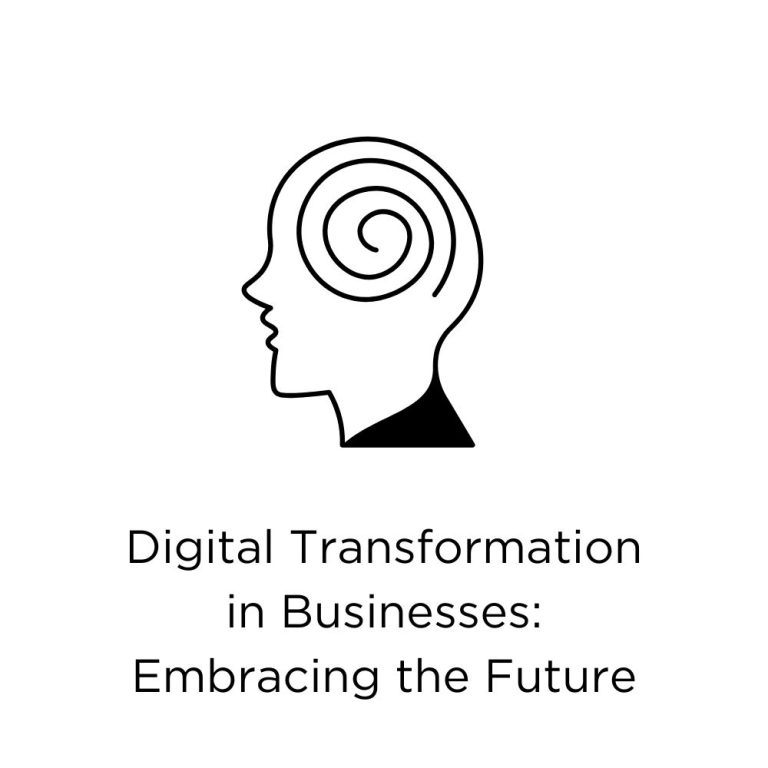
In the rapidly evolving landscape of the 21st century, digital transformation has emerged as a critical driver of business success. It goes beyond simply adopting new technologies—it signifies a fundamental shift in how organizations operate, deliver value to customers, and remain competitive in an increasingly digital world.
What is Digital Transformation?
Digital transformation refers to the integration of digital technology into all areas of a business, resulting in profound changes in how businesses operate and how they deliver value to customers. It involves a cultural change that requires organizations to continually challenge the status quo, experiment, and embrace failure as part of the learning process.
This transformation can include a wide range of initiatives, such as adopting cloud computing, automating operations, leveraging data analytics, implementing artificial intelligence, and modernizing legacy systems.
Key Drivers of Digital Transformation
Several factors are propelling businesses to embrace digital transformation:
-
Customer Expectations: Today’s consumers expect seamless digital experiences. They demand fast, personalized, and accessible services across platforms.
-
Technological Advancements: The proliferation of cloud services, mobile devices, big data, AI, and IoT offers new capabilities and insights that were previously unimaginable.
-
Competitive Pressure: As digital-native companies disrupt traditional markets, established businesses must adapt or risk obsolescence.
-
Operational Efficiency: Digital tools can automate repetitive tasks, reduce human error, and optimize workflows, leading to cost savings and increased productivity.
-
Data-Driven Decision Making: Businesses now have access to vast amounts of data. Analyzing this data allows for better strategic decisions, customer insights, and innovation.
Core Components of Digital Transformation
-
Customer Experience (CX): Enhancing user experience through digital touchpoints, intuitive interfaces, and personalized communication.
-
Operational Processes: Digitizing internal processes to improve efficiency, such as supply chain automation, digital HR, or remote collaboration tools.
-
Business Models: Innovating products, services, and revenue models using digital platforms—for example, subscription services or digital marketplaces.
-
Culture and Leadership: Promoting a mindset that embraces innovation, agility, and continuous learning.
Challenges in Digital Transformation
Despite its benefits, digital transformation presents several challenges:
-
Legacy Systems: Outdated infrastructure can hinder integration and agility.
-
Skill Gaps: Employees may need upskilling or reskilling to work with new technologies.
-
Change Management: Resistance to change can stall transformation efforts.
-
Cybersecurity Risks: More digital operations mean greater exposure to cyber threats.
-
Investment Costs: Initial costs can be high, requiring careful planning and ROI analysis.
Successful Examples
-
Amazon: Leveraged data analytics, cloud infrastructure, and customer-centric design to redefine retail.
-
Netflix: Transitioned from DVD rentals to a digital streaming platform, using AI to personalize content.
-
General Electric (GE): Embraced industrial IoT and data analytics to enhance manufacturing and maintenance operations.
The Road Ahead
Digital transformation is not a one-time project—it’s an ongoing journey. As emerging technologies like quantum computing, augmented reality, and blockchain gain traction, businesses must remain agile and forward-thinking. Collaboration between IT and business units, strategic investment, and a strong digital culture will be essential to harness the full potential of digital transformation.
Conclusion
In today’s digital age, transformation is not a luxury—it’s a necessity. Businesses that embrace digital change proactively can not only survive but thrive, unlocking new levels of innovation, efficiency, and customer satisfaction. The future belongs to those who are willing to adapt, experiment, and lead in the digital frontier.
for regular updates :
Website https://edigitalgyan.com/
call us at 9999601560
Write us at info@edigitalgyan.com
Facebook:https://www.facebook.com/edigitalgyan/
Instagram: https://www.instagram.com/edigitalgyan
Youtube :https://www.youtube.com/@edigitalgyan
